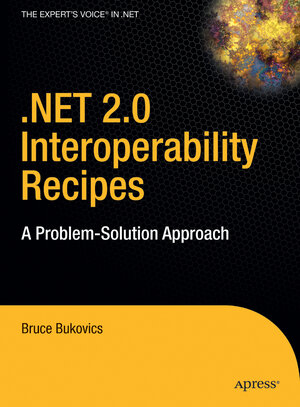. NET represents a new and improved way of developing software for the Windows platform. Given the chance, you'd probably rewrite all of your existing code in the newer managed code environment that . NET provides. But it is difficult or impossible to throw out all existing legacy code and start over when a new technology arrives. Instead, you need to find a way to move forward with new . NET development while reusing existing pieces of tested, working code. You need a way to interoperate with the existing code until you have a chance to finally rewrite all of it in . NET.
The only recipe-style book on the subject, . NET 2.0 Interoperability Recipes: A Problem-Solution Approach guides Windows developers who are transitioning from native Windows code to . NET managed code.
. NET tools will allow you to interoperate with existing code. But finding the appropriate tool for the task at hand can sometimes be a frustrating experience. So this book will guide you past myriad infrequently used interop options to focus on those youll use most often.







